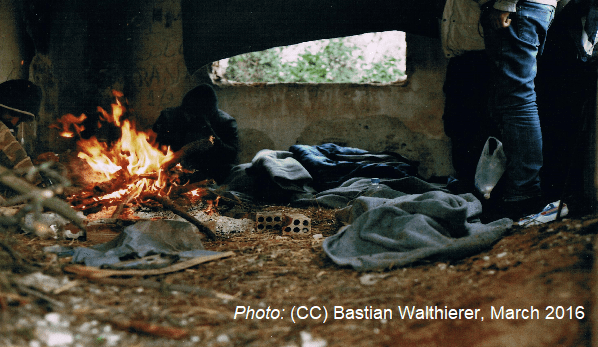More than 30,000 pushbacks were recorded between June 2019 and September 2021 from Croatia, where testimonies reveal “excessive use of violence” and a pattern of “invasive searching” and sexual violence by police. Border Violence Monitoring Network (BVMN) has presented its findings regarding pushbacks and other forms of border violence by Romanian authorities to the United Nations Committee on Economic, Social and Cultural Rights (CESCR). In Serbia asylum seekers are denied access to the territory and held in detention in a transit zone at Belgrade airport.
ECRE member the Danish Refugee Council (DRC) has recorded 30,309 pushbacks from Croatia to Bosnia between June 2019 and September 2021. “From the beginning of this year until now we saw [about] 7,200 cases of pushbacks, 25% of them we know…to be excessive use of violence,” said Hector Carpintero, DRC country director in Bosnia. Testimonies published by BVMN in their September report on illegal pushbacks and border violence in the Balkan region reveal a “concerning pattern of invasive searching and sexual violence during pushbacks to Bosnia-Herzegovina and Serbia”. This includes forced undressing, violent stripping, and groping of people’s genitals by Croatian police. According to BVMN, 45% of cases recorded from Croatia “included forced undressing, often followed by the burning of clothing or pushing the semi-naked groups into rivers”. Reuters report that several hundred Afghan nationals including children and a seven-day-old baby have settled in a makeshift camp near the border with Croatia. Thousands of people have been stranded in this same location since 2018. The group has confirmed reports of violence and robberies of belongings by Croatian police. “They took my shoes and all things, beat me a lot, deported me back to Bosnia,” stated one person, continuing: “I walked 25 kilometres without shoes”. Croatian authorities have come under presure from NGOs as well as the European Commission following the recent release of extensive video and forensic evidence of violent pushbacks. While three police officers have been suspended, an efficient and independent border monitoring mechanism has not yet been established.
Rights violations in Romania have received less attention than those of other countries in the Balkan region. However, on 18 October BVMN presented evidence of pushbacks and border violence perpetrated by authorities in the country to the CESCR, a UN rights body that monitors state implementation of the International Covenant on Economic, Social and Cultural Rights. According to BVMN, the continuous pushbacks and collective expulsions of refugees and migrants carried out by Romanian authorities are illegal and in contradiction with the obligations set out under the Covenant. Furthermore, the organisation points to the “continued use of torture and inhuman treatment by Romania authorities as documented across 95% of pushbacks, highlighting how such rights violations are in direct violation of the right to the highest attainable standard of health as outlined under the Covenant”. According to the UN Refugee Agency (UNHCR) in Serbia, 13,409 persons were collectively expelled from Romania to Serbia between 1 January and 31 December 2020.
ECRE member Belgrade Center for Human Rights (BCHR) has released a statement expressing concern over increasing reports of people being denied entry into Serbia and held in the transit zone of Nikola Tesla Airport in Belgrade. BCHR states that it has been receiving calls from dozens of people wishing to apply for international protection who were refused entry into Serbia. The organisation recalls that: “the Serbian MIA is under the obligation to respect and apply the Asylum and Temporary Protection Act in respect of all aliens who notify police officers that they want to seek asylum in Serbia. The relevant institutions are under the duty to examine the existence of the risk of persecution, torture or cruel, inhuman or degrading treatment of each asylum seeker.” Further, BCHR reports that asylum seeking women and children are also being held in inadequate conditions at the airport.
For further information:
- ECRE, Balkan Route: Croatia and Romania Deny Systemic Pushbacks Despite Overwhelming Evidence, NGOs Point to EU Complicity and Urge Stronger Response, Croatian Border Monitoring “Toothless” and “Ineffective”, October 2021
- ECRE, Balkan Route: Hundreds Pushed Back Across the Region in August – Afghans Victims of Systematic Pushbacks, Evictions, Raids and Hostility in Croatia and BiH, September 2021
Photo: (CC) Bastian Walthierer, March 2016
This article appeared in the ECRE Weekly Bulletin. You can subscribe to the Weekly Bulletin here.

